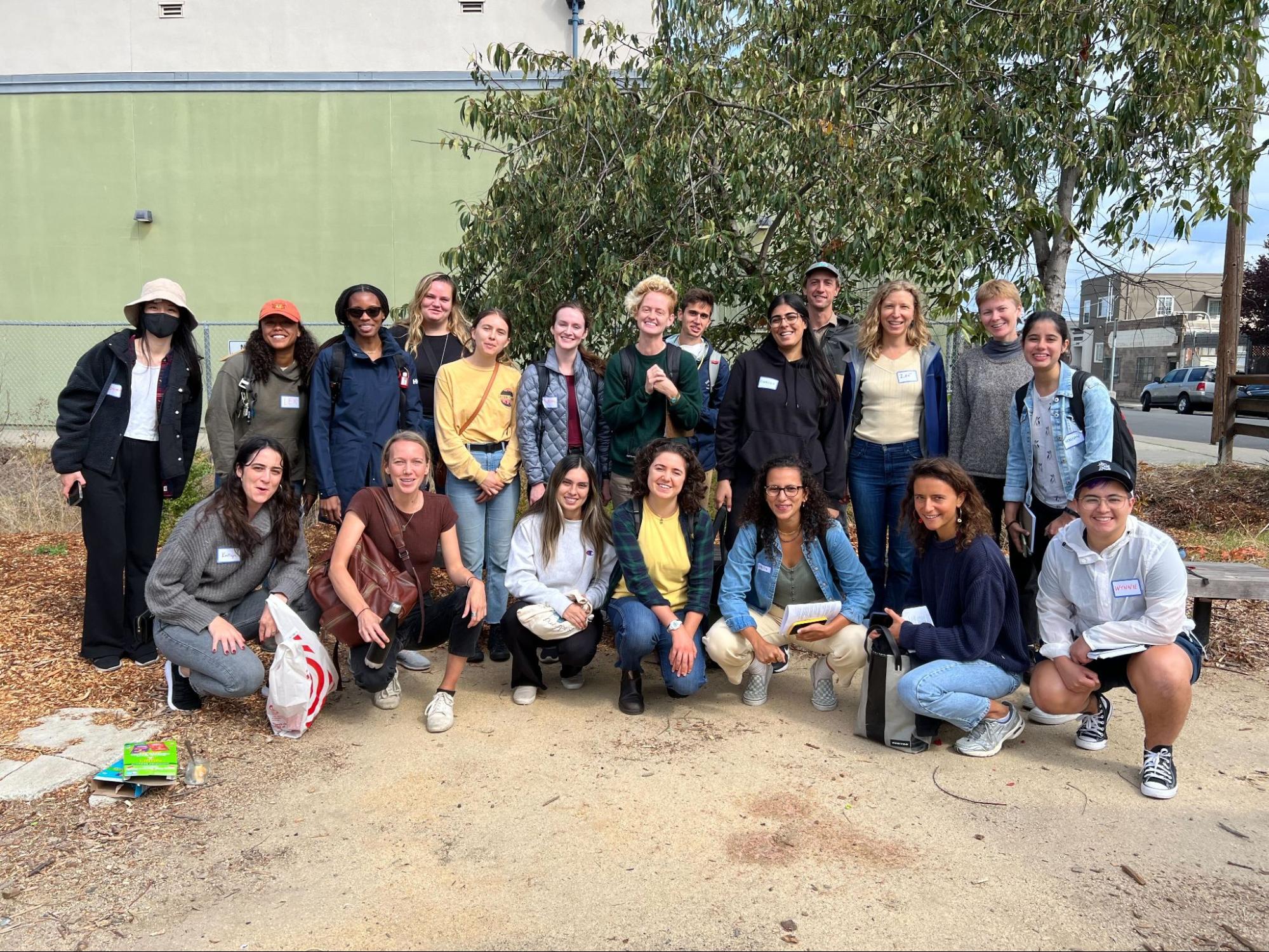Partnership for the Bay’s Future (PBF) is an SFF initiative to advance housing solutions. PBF works to produce, preserve, and protect affordable homes in the Bay Area and to ensure our region remains a diverse place where all people are welcome and can thrive. Kaitlyn Quakenbush is a Partnership for the Bay’s Future Policy Grant Fellow, working towards solving the affordable housing crisis by forging community and government partnerships to implement equitable policies. She shared a blog reflecting on her experience, and a portion is excerpted below:
It was a brisk October morning in downtown Richmond when community members gathered at a vacant lot on MacDonald Ave, Richmond’s historic mainstreet, and 16th St, across from the Richmond BART station. Some of the group, who live nearby, mentioned that the lot had been vacant for as long as they could remember. Mostly everyone agreed that these types of vacant lots around town were so common they barely noticed them anymore.
The group consisted of lifetime Richmond residents and members of local community-based organizations: Alliance of Californians for Community Empowerment (ACCE); and RichmondLAND, a community land trust and grantee of the Partnership for the Bay’s Future’s (PBF) Policy Grants. As a PBF Fellow, I’m working to strengthen cross-sectoral collaboration between the community, RichmondLAND, and the City of Richmond’s Community Development department – bringing the community’s voice to the policy-making process. The land we stood on is owned by the City of Richmond, designated “surplus land” in compliance with a state law called the Surplus Land Act, and I gathered this group to hear their thoughts on developing land like this.
The Surplus Land Act
The Surplus Land Act – updated by AB1486 in 2020 – requires that unused public land be prioritized for affordable housing while reducing cost barriers to housing development. The bill defines “surplus” as land owned by any local government agency that is not necessary for the agency’s use. The government agency must then make land available for affordable housing before selling or leasing the land for another purpose. The City of Richmond has identified 14 sites as surplus, and our group had planned a walking tour of 8 of those sites.
Read more about Kaitlyn’s experience.
Learn more:
- Read more about Partnership for the Bay’s Future
- Read more about SFF’s All-in on Housing work.


